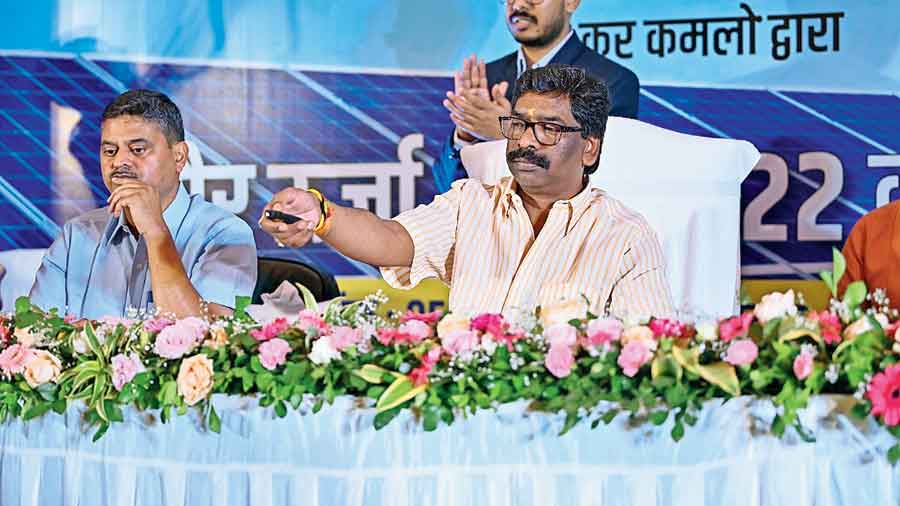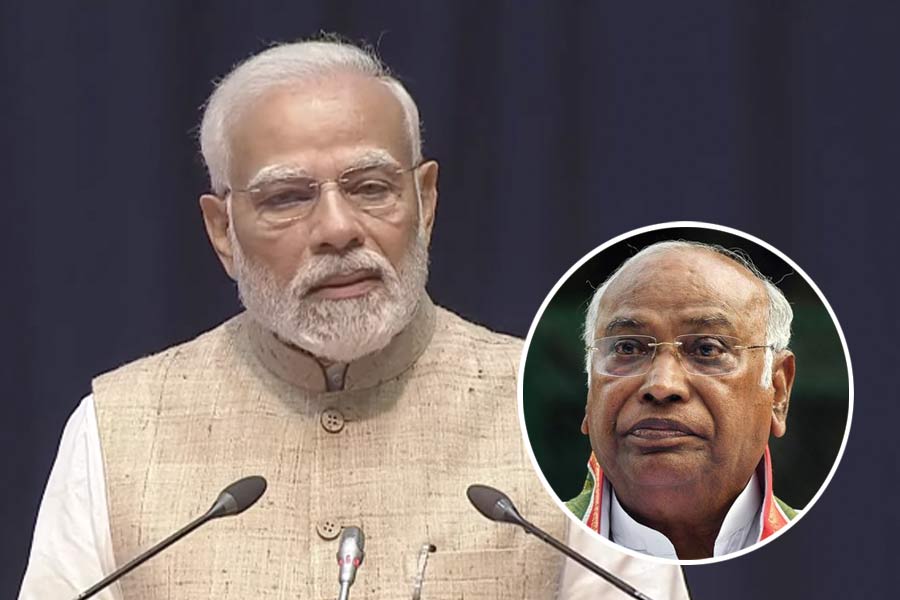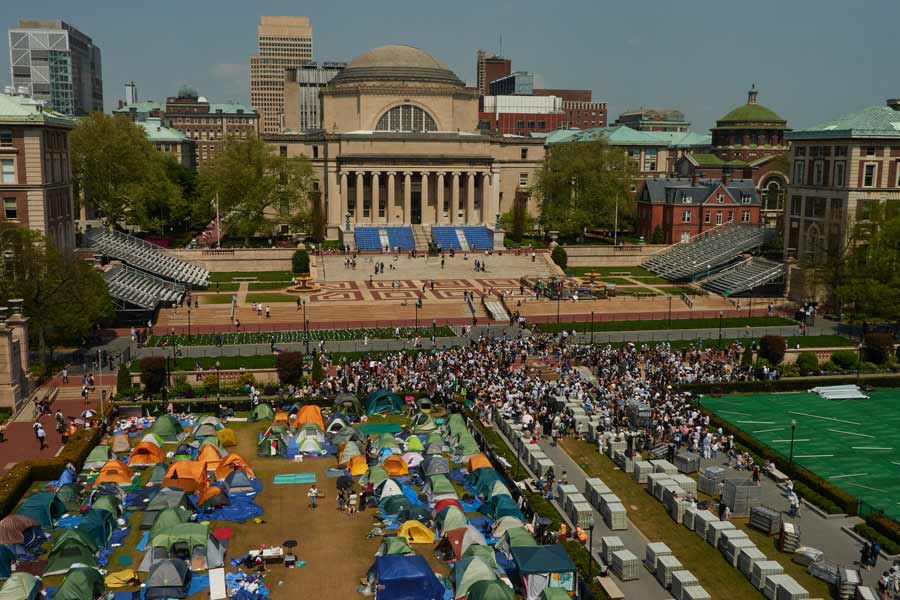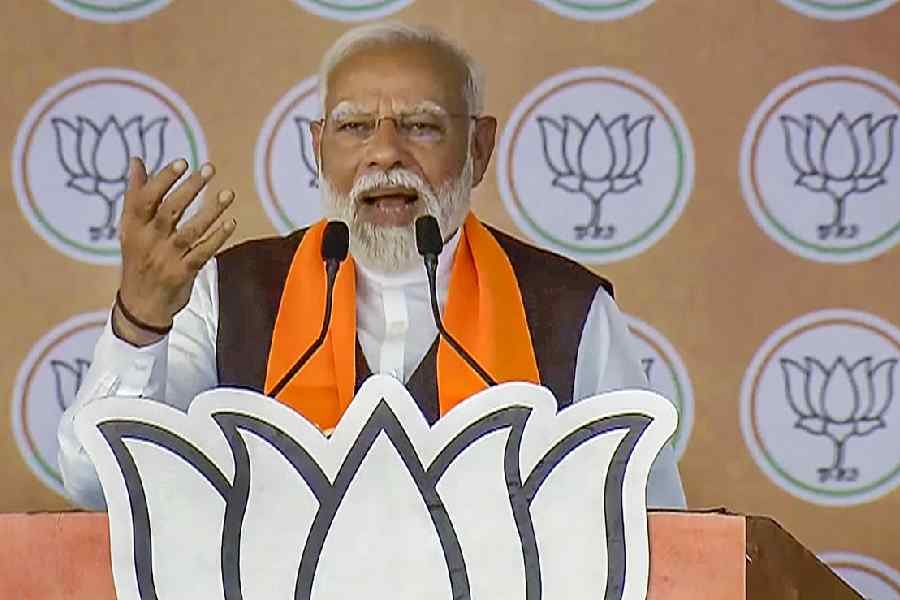Jharkhand chief minister Hemant Soren rolled out the Jharkhand state solar policy 2022 on Tuesday that aimed at generating 4,000 MW of solar energy by 2026-27.
“The solar energy generated in the state will pave the way for transition towards clean energy as that will prove to be a substitute, to a large extent, for thermal and hydro power dependence on which is increasing everyday, besides being much cheaper,” the CM said after unveiling the policy in a Ranchi hotel.
He also virtually launched a solar city project in Giridih district and initiated setting up of two solar plants, each of 600 MW capacity, at Deoghar and Dhanbad airports.
“The solar energy generated locally would immensely help villagers living in such areas in the state where power supply through transmission lines always poses a problem due to their difficult geographical locations,” Soren said, adding the government would also set up 100 solar villages and encourage the villagers in generating solar energy.
“This is a perspective plan for incorporating solar power in the energy system of the state,” said Avinash Kumar, principal secretary of state energy department.
While 3,000 MW of the targeted 4,000 MW of clean energy by 2027 was planned to be achieved through utility-scale solar projects like solar parks, floating and canal top plants, the rest would be from sources such as rooftop, captive and agriculture field units.
To encourage private investors, the policy provided a number of attractive schemes such as a single window system, statutory approval of such proposals within 60 days, introducing a payment security mechanism, arrangement of land through land banks and 100 per cent exemption from paying state GST for the next five years.
The Jharkhand Renewable Energy Development Agency (JREDA), the nodal agency for implementing the policy, will also seek an “expression of interest” from private landowners who would offer their land, either for sale or on lease, for installing solar power plants.
The policy also aims to install rooftop solar system on both government and private buildings for generating 250 MW of clean energy.
“Those with annual income of less than Rs 3 lakh would be given 100 percent subsidy for setting up a rooftop panel for generating solar power,” announced JREDA director K.K. Verma.
“Once implemented, this policy will help create 45,000 jobs and also reduce emission of 35 MT of carbon dioxide,” claimed Arunabha Ghosh, CEO of Council on Energy,
Environment and Water that was involved in drafting the policy and will also help implementing it.










